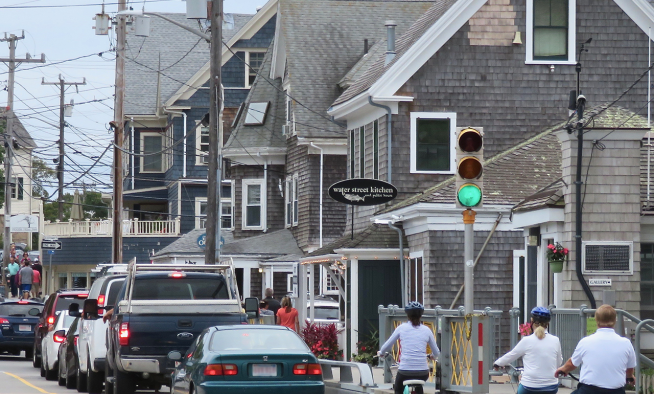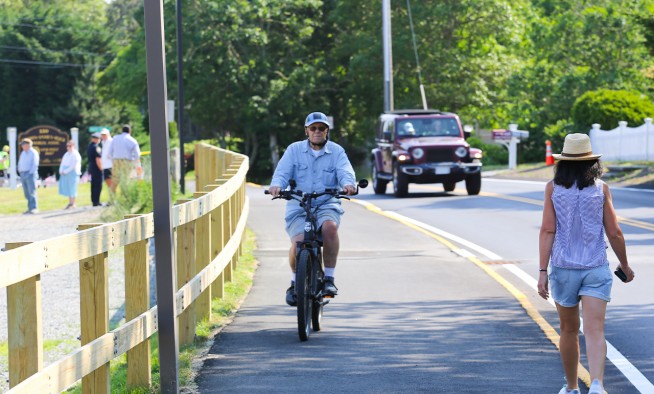Advancing Local Housing Goals: DLTA Projects in Sandwich and Falmouth
Each year, the Cape Cod Commission receives funding through the Massachusetts Executive Office of Housing and Livable Communities’ District Local Technical Assistance (DLTA) program. This initiative enables the Commission to support Cape towns with technical planning assistance that fosters sustainable development and aligns with both state and regional priorities.
This year, DLTA funding is helping advance two important local housing initiatives in the towns of Sandwich and Falmouth, each addressing different but important aspects of housing development and smart growth.
Sandwich: Aligning Zoning with Wastewater and Housing Readiness
In Sandwich, the Commission is partnering with town staff to explore zoning changes that advance community housing goals and align with recent investments in wastewater infrastructure. This work builds on a 2019 DLTA-supported zoning framework and focuses on the South Sandwich Village center area.
By integrating wastewater planning with land use policy, this project positions Sandwich to encourage context-sensitive housing development in key growth centers. Commission staff have conducted site visits and worked with town staff on early concept development over the spring and summer and are collaborating on initial zoning ideas.
The team is now refining these concepts and beginning to draft potential zoning amendments. The Town is also considering pre-approved model housing plans which offers a way to streamline permitting and meet housing needs while complementing regional design and architectural character.
This approach supports several goals outlined in the Cape Cod Regional Housing Strategy, including adopting zoning in appropriate locations to allow for more types of housing and aligning infrastructure planning and investments with housing initiatives.
Falmouth: Shaping Design Guidelines for Mixed-Use Housing
In Falmouth, the Commission is assisting with the development of design guidelines for the Mixed Residential and Commercial Overlay District (MRCOD). These guidelines will help ensure that future development reflects the town’s architectural character while advancing mixed-use and multi-family housing in appropriate areas.
Commission and town staff conducted a site visit to analyze the existing development pattern earlier this year. The team has since identified distinct sub-areas within the overlay district and developed draft design principles and character-defining elements tailored to each.
The next phase will involve collaborating with town staff to develop and refine design guidance. The project goal is to produce a set of clear, locally tailored design standards that balance aesthetic continuity with the need for diverse, context-appropriate housing and mixed-use development.
This effort directly supports the Housing Strategy’s recommendation to streamline permitting and encourage housing in already developed areas—an approach that promotes housing diversity and neighborhood character.
Supporting Regional Housing Solutions
Together, the projects in Sandwich and Falmouth demonstrate how the DLTA program can serve as a catalyst for local housing initiatives that are grounded in broader regional strategies. By aligning zoning, infrastructure, and design standards, these efforts are helping towns respond to the region’s housing needs while protecting the qualities that Cape Cod communities value.
Related Posts




